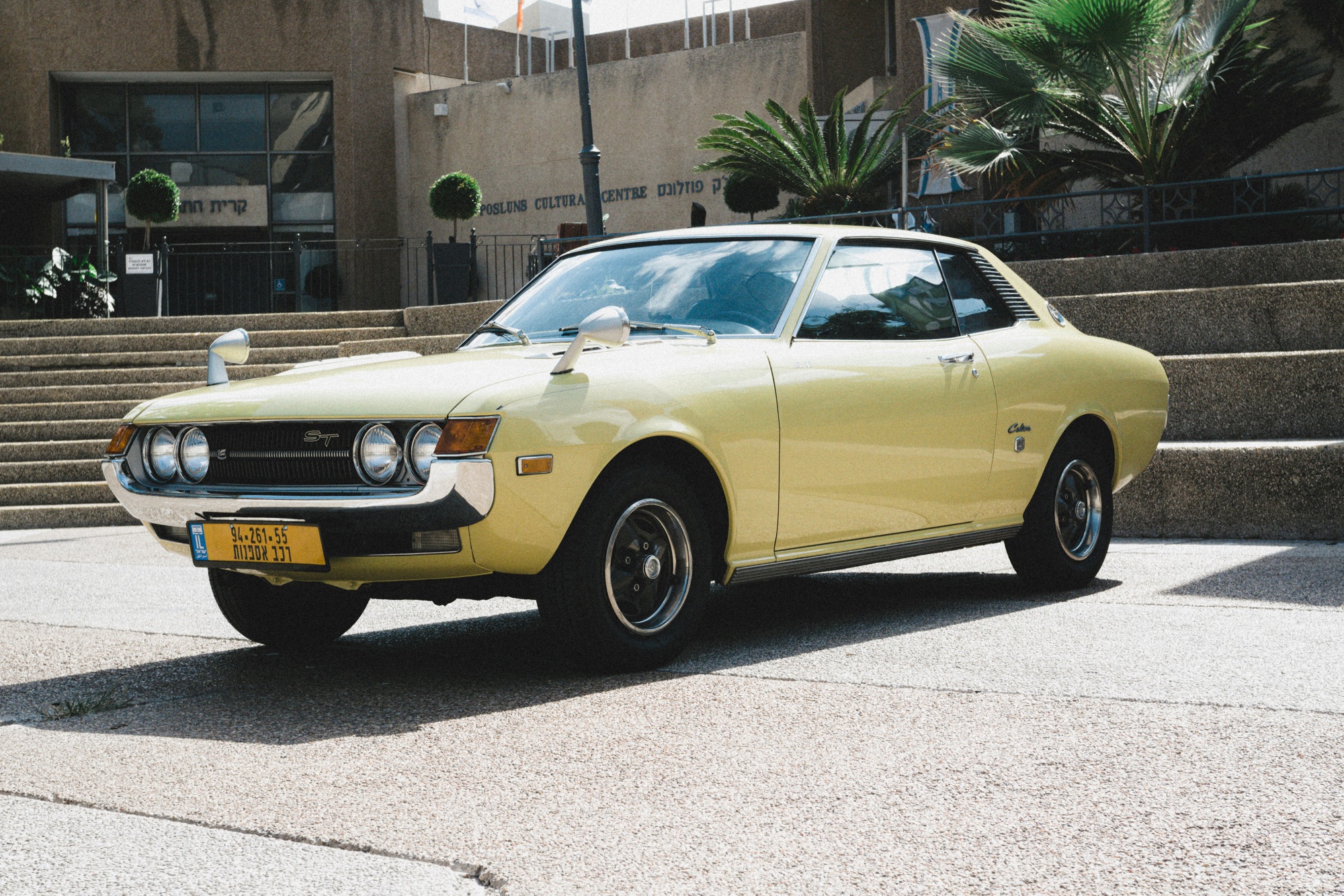Toyota’s reputation for reliability is nearly legendary in the automotive world. For decades, the brand has consistently ranked at the top of reliability surveys and reports, earning the trust of millions of drivers worldwide. But what exactly makes Toyota vehicles so dependable? The answer lies in a combination of rigorous engineering, conservative innovation, robust quality control, and a deep-rooted company culture that prioritizes long-term customer satisfaction. This article delves into the key factors that have made Toyota synonymous with reliability.
- Rigorous Engineering and Design Philosophy
Toyota’s approach to vehicle design and engineering is deeply rooted in a philosophy that values precision and performance. This section will explore the specific engineering principles and practices that contribute to the brand’s enduring reliability.
### Conservative Innovation and Proven Technology
One of Toyota’s core strengths is its conservative approach to innovation. Unlike some automakers that rush to introduce the latest cutting-edge technologies, Toyota carefully evaluates and tests new advancements before implementing them. This philosophy ensures that only proven and thoroughly tested technologies make their way into Toyota vehicles. By avoiding unnecessary complexity and prioritizing durability, Toyota minimizes the risk of mechanical failures.
For example, while other manufacturers were quick to adopt turbocharged engines to increase performance, Toyota continued to rely on naturally aspirated engines, which are generally simpler and more reliable. Even with newer technologies, Toyota takes an incremental approach, ensuring every component is perfected before reaching the consumer.
### Kaizen: Continuous Improvement
Toyota’s renowned “Kaizen” philosophy, meaning “continuous improvement,” is integral to its engineering and production processes. This approach encourages every employee, from assembly line workers to engineers, to constantly seek ways to enhance efficiency, reduce errors, and improve quality. This culture of relentless refinement ensures that Toyota vehicles are consistently built to high standards, with small improvements made regularly rather than waiting for major redesigns.
### Real-World Example: The Prius Development
A prime example of Toyota’s engineering philosophy can be seen in the development of the Toyota Prius. When the Prius was first introduced, it represented a significant technological advancement with its hybrid drive system. Toyota spent years perfecting this technology, focusing on battery performance, engine efficiency, and seamless integration between the electric and combustion engines. By not rushing the Prius to market and instead ensuring every component worked harmoniously, Toyota set a new standard for hybrid vehicles worldwide.
- Meticulous Quality Control and Manufacturing Processes
Toyota’s commitment to quality is not just a buzzword; it is a systematic, deeply ingrained practice that influences every step of their manufacturing process.
### The Toyota Production System (TPS)
The Toyota Production System (TPS), often referred to as lean manufacturing, is a model for efficient and high-quality production. It emphasizes reducing waste, maintaining consistent quality, and ensuring that every part of the manufacturing process is optimized. Key elements include:
- Just-In-Time Production: This approach ensures that parts are delivered precisely when needed, reducing waste and storage costs while ensuring that all components are fresh and up-to-date.
- Jidoka (Automation with a Human Touch): Jidoka allows machines and assembly lines to automatically stop when a problem is detected. This ensures that issues are addressed immediately rather than allowing defects to multiply further down the line. This meticulous attention to detail and early problem detection lead to fewer defects and higher reliability across all Toyota models.
### Supplier Relationships and Quality Control
Toyota has long-term relationships with its suppliers, emphasizing quality and consistency. The company works closely with suppliers to ensure that the components used in its vehicles meet strict standards. Additionally, Toyota uses extensive quality control checks at every stage of production, ensuring that each part and process is up to its high standards before the vehicle is assembled.
### Case Study: Supplier Collaboration
A notable example of Toyota’s supplier relationship strategy can be seen with Denso, a major automotive component manufacturer. By working closely with Denso, Toyota ensures that innovations are aligned with their standards. This collaboration has led to improvements like more efficient HVAC systems and advanced safety technologies that enhance vehicle reliability.
- Reliability-Centered Design Choices
Toyota’s design philosophy emphasizes simplicity and durability. This section will delve into how these design choices contribute to their vehicles’ outstanding reliability.
### Simplified and Durable Components
By focusing on straightforward engineering solutions, Toyota reduces the chances of mechanical issues and keeps repair costs low. For example, Toyota engines are known for being robust and easy to maintain because they use time-tested designs with fewer points of failure compared to more complex engines.
### Fewer Recalls and Consistent Performance
Toyota’s focus on reliability is reflected in its lower recall rates compared to many other automakers. Because Toyota doesn’t rush new technologies into production, it avoids many of the teething issues that can lead to widespread recalls. Furthermore, Toyota vehicles are consistently praised for delivering reliable performance over long periods, with many models known to easily surpass 200,000 miles with regular maintenance.
### Practical Tip: Maintenance for Longevity
To maximize the reliability of a Toyota vehicle, regular maintenance is key. Simple practices like timely oil changes, tire rotations, and brake inspections can help maintain the vehicle’s peak performance. Toyota’s maintenance schedule is designed to prevent issues before they arise, ensuring that each vehicle continues to deliver dependable service.
- Thorough Testing and Long Development Cycles
Toyota doesn’t just rely on theoretical designs; it puts them to the test in the real world. This section explores how Toyota’s testing methodologies ensure reliability.
### Extensive Pre-Production Testing
Before any Toyota model is released to the market, it undergoes extensive testing in various real-world conditions. Toyota vehicles are tested for extreme temperatures, road conditions, and climates to ensure they can perform reliably anywhere in the world. This rigorous testing process helps identify potential weak points and allows engineers to make adjustments long before mass production begins.
### Longer Development Cycles
Unlike some automakers that update models frequently with major overhauls every few years, Toyota tends to follow longer development cycles. By refining existing designs rather than constantly introducing new platforms, Toyota can ensure that every new feature or component is fully vetted before it is introduced. This approach also allows Toyota to carry over proven designs and components into new models, further enhancing reliability.
### Example: The Land Cruiser’s Legacy
The Toyota Land Cruiser is an excellent example of long development cycles contributing to reliability. Over its many years of production, the Land Cruiser has seen only gradual changes, maintaining its core design principles. This steady evolution has made it one of the most reliable off-road vehicles, trusted by adventurers and professionals worldwide.
- Customer-Centric Focus and Reputation Management
At the heart of Toyota’s reliability is a deep commitment to customer satisfaction, which plays a crucial role in the company’s long-term success.
### Building Trust Through Consistency
Toyota’s reputation for reliability isn’t just a result of robust engineering—it’s a key part of the company’s long-term strategy. By consistently producing reliable vehicles, Toyota builds trust with customers, leading to high customer loyalty and repeat purchases. This customer-centric focus means Toyota prioritizes long-term satisfaction over short-term gains, ensuring that reliability remains at the forefront of its brand identity.
### Strong Resale Value
The reliability of Toyota vehicles also translates into strong resale value. Because Toyota models are known for their durability, they tend to retain their value better than many competitors. Buyers are willing to pay a premium for used Toyota vehicles because they know they are likely to get a dependable car that can last for years without major issues.
### Personal Insight: Choosing a Reliable Vehicle
When selecting a vehicle, consider past reliability ratings, consumer reports, and owner reviews. Toyota’s consistent track record in these areas makes it a go-to brand for buyers seeking peace of mind. For instance, models like the Camry and Corolla have a long history of high reliability ratings, making them excellent choices for those who value dependability.
- The Role of Technology in Enhancing Reliability
As technology becomes increasingly integral to automotive design, Toyota has strategically embraced advancements that enhance reliability without sacrificing performance.
### Advanced Safety Features
Toyota has incorporated advanced safety technologies, such as the Toyota Safety Sense package, which includes features like pre-collision systems and adaptive cruise control. These technologies are rigorously tested to ensure they do not compromise the vehicle’s reliability, providing peace of mind to drivers.
### Hybrid Technology and Reliability
Toyota’s investment in hybrid technology, particularly with the Prius, demonstrates its commitment to sustainable and reliable advancements. The hybrid systems are designed to seamlessly integrate with traditional engines, offering enhanced fuel efficiency without sacrificing reliability.
### Data-Driven Maintenance Insights
With the advent of connected vehicles, Toyota is utilizing data analytics to provide owners with proactive maintenance insights. This technology alerts drivers to potential issues before they become serious, allowing for timely interventions that enhance vehicle longevity.
- Common Mistakes and How to Avoid Them
Even with a reliable brand like Toyota, there are common maintenance mistakes that can affect vehicle performance.
### Ignoring Scheduled Maintenance
One of the biggest mistakes is neglecting scheduled maintenance. To avoid this, adhere to Toyota’s recommended maintenance schedule, which is designed to keep the vehicle in optimal condition.
### Using Non-Genuine Parts
Another common error is using non-genuine parts for repairs. While they might be cheaper, these parts can compromise the vehicle’s reliability. Always opt for genuine Toyota parts to ensure compatibility and performance.
### Overlooking Tire Health
Proper tire maintenance is crucial for vehicle reliability. Regularly check tire pressure and tread depth to ensure safety and performance. Rotating tires as per the maintenance schedule can also extend their lifespan and maintain fuel efficiency.
Toyota’s reputation for reliability is no accident—it’s the result of a deliberate and consistent strategy that emphasizes proven technology, meticulous quality control, and a company-wide culture of continuous improvement. From its conservative approach to innovation to its rigorous testing and customer-centric focus, Toyota has built a legacy that few automakers can match. For drivers who prioritize reliability, it’s no surprise that Toyota remains one of the most trusted brands in the automotive industry.




